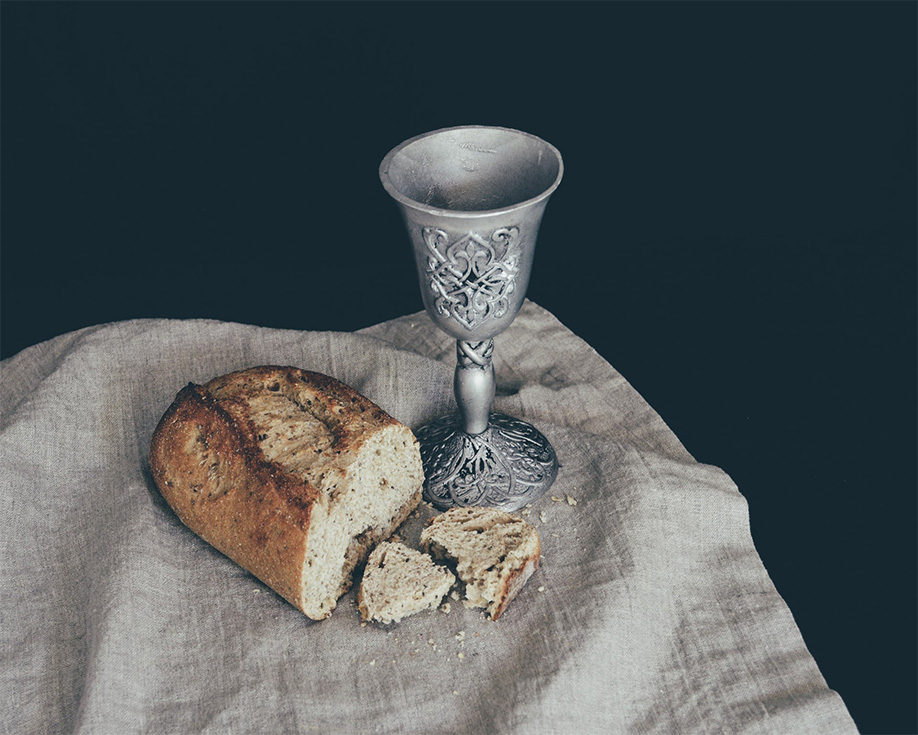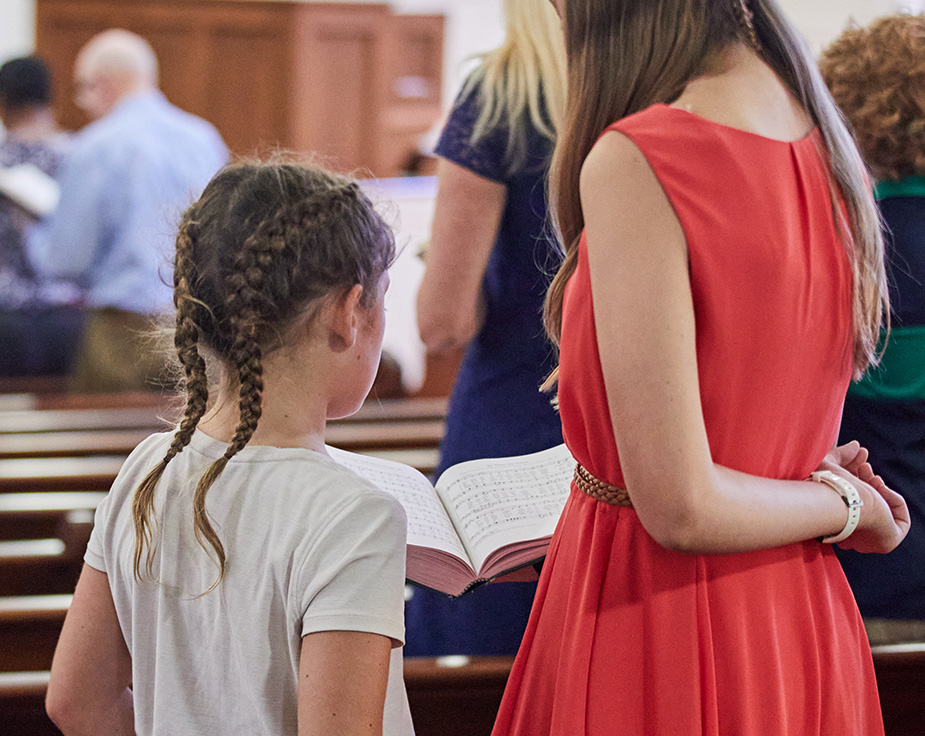What We Believe
Core Values • Doctrine
Our Beliefs
Core Values
It is our deepest desire to be a warm, gracious, inviting, and open church; yet holding strong convictions that always come directly from the Bible. More than anything else, we desire that all who participate in the life of our church will experience the transforming power of the gospel of Jesus Christ.
We believe in the power of the Gospel to transform our lives. The message of the gospel is that Christ has done what is necessary to bring us into a relationship with God. Our sinfulness does not count against us and our religious efforts do not count for us. The guilt of our sin is forgiven in the death of Christ, and the power of sin is broken through the resurrection of Christ.
We believe the Bible is the Word of God and is the sufficient and necessary guide for our lives.
This means that the way we express our faith has been greatly influenced by many of the perspectives that came out of the 16th century Protestant Reformation. For example, we believe that God is sovereign over every aspect of creation including our salvation and service to him. The Westminster Confession of Faith summarizes Reformed theology in a way that, we believe, is faithful to the teachings of Scripture.
We believe God has ordained a simple and clear pattern by which Christ’s church is to be nurtured in her faith. We call this the “ordinary means of grace”. Acts 2:42 lists the four ordinary means of grace:
1. the teaching of God’s Word,
2. the celebration of Christian worship (sacraments)
3. prayer,
4. the development of genuine community among God’s people (fellowship).
We believe that the church is a family of families. The church’s ministry is multi-generational. For more detail see Philosophy of Family Ministry.
We believe that the Christian life begins and ends in the worship of God. Worship is the end to which our service leads, as we call others to faith in Christ in order that they, too, may worship him.
This is simply a description (from 1 Timothy 4:14) of the way our church is governed. It is based on the idea found throughout the Bible that God’s people are to be under the care and oversight of “elders”. Each local church is shepherded by a group of elders called the “Session”. We are in a unique season in the life of our church; please contact any of the church officers for more information.
We believe that as individuals and as a church we are called to proclaim to all people in all places the salvation that is available in Jesus Christ. We hope that all members of our church will participate at some level in bringing the good news of the gospel to those who do not yet know Christ.
Our Beliefs
Sacraments
Baptism and the Lord’s Supper are the only two sacraments of the New Testament church and so when considering one, it is important to keep the other in view.

Baptism
The Westminster Larger Catechism speaks to the similarities and the differences between these two sacraments. It summarizes the similarities in stating that “the spiritual part of both is Christ and his benefits;” “they are both seals of the same covenant” (WLC # 176). It summarizes the differences when it says that baptism, which is administered only once to an individual, is “a sign and a seal of our regeneration and ingrafting into Christ, and that even to infants,” whereas the Lord’s Supper is administered often as it represents Christ’s ongoing “spiritual nourishment,” but “only to such as are of years and ability to examine themselves” (WLC # 177, italics added).
Connection to Lord's Table
This raises a question, even a tension, for the church committed to infant baptism as it prepares those covenant children eventually to come to the Lord’s Table as communing members of the church. When should a covenant child (a non-communing member of the church) begin taking communion?

Communion
The Catechism’s language regarding the Supper, “years and ability to examine themselves,” implies a spiritual initiative on the part of the communicant and is rooted in language from the Apostle Paul. Those who partake of the Lord’s Supper must be able to “examine themselves” (1 Corinthians 11:28) and “discern the body of the Lord” (1 Corinthians 11:29).
Again, the connection between the sacraments of baptism and the Supper is helpful at this point. Ultimately, the way from the baptismal font to the Lord’s Table is by way of believing/laying hold of that which was signified at the font, which is nothing less than Christ and his salvation benefits.
To use the Catechism’s language, we, and our children, have the duty of “improving our baptism” (WLC # 167) if we are worthily to participate in the Lord’s Supper. Specifically, we are to be “humbled for our sinful defilement;” we are “to grow up to the assurance of pardon of sin…by drawing strength from the death and resurrection of Christ…for the mortifying of sin, and quickening of grace; and by endeavoring to live by faith, to have our conversation in holiness and righteousness…and to walk in brotherly love” all because we have laid hold of the crucified and resurrected Christ whom our baptism seals and signifies.
(Note the strikingly similar language in WLC #171 as it speaks to preparation for the Lord’s Supper; cf. Shorter Catechism #97 where Paul’s warning about hasty, presumptuous participation is underscored: “lest, coming unworthily, they eat and drink judgment to themselves.” See 1 Corinthians 11:27-29.)
In other words, baptism calls us to, and the Lord’s Supper requires, a credible profession of faith in Christ; a profession that is adorned by Spiritual fruit in our lives, fruit that involves an active ability to examine ourselves and is born out of a right understanding of the Person and Work of Jesus Christ.
It is obvious that such a profession requires careful instruction and prayer on the part of the church and family and a Spirit-given response on the part of the child.
communion
The Catechism’s language regarding the Supper, “years and ability to examine themselves,” implies a spiritual initiative on the part of the communicant and is rooted in language from the Apostle Paul. Those who partake of the Lord’s Supper must be able to “examine themselves” (1 Corinthians 11:28) and “discern the body of the Lord” (1 Corinthians 11:29).
Again, the connection between the sacraments of baptism and the Supper is helpful at this point. Ultimately, the way from the baptismal font to the Lord’s Table is by way of believing/laying hold of that which was signified at the font, which is nothing less than Christ and his salvation benefits.
To use the Catechism’s language, we, and our children, have the duty of “improving our baptism” (WLC # 167) if we are worthily to participate in the Lord’s Supper. Specifically, we are to be “humbled for our sinful defilement;” we are “to grow up to the assurance of pardon of sin…by drawing strength from the death and resurrection of Christ…for the mortifying of sin, and quickening of grace; and by endeavoring to live by faith, to have our conversation in holiness and righteousness…and to walk in brotherly love” all because we have laid hold of the crucified and resurrected Christ whom our baptism seals and signifies.
(Note the strikingly similar language in WLC #171 as it speaks to preparation for the Lord’s Supper; cf. Shorter Catechism #97 where Paul’s warning about hasty, presumptuous participation is underscored: “lest, coming unworthily, they eat and drink judgment to themselves.” See 1 Corinthians 11:27-29.)
In other words, baptism calls us to, and the Lord’s Supper requires, a credible profession of faith in Christ; a profession that is adorned by Spiritual fruit in our lives, fruit that involves an active ability to examine ourselves and is born out of a right understanding of the Person and Work of Jesus Christ.
It is obvious that such a profession requires careful instruction and prayer on the part of the church and family and a Spirit-given response on the part of the child.


Timing
The Bible does not prescribe an age at which covenant children are to begin communing; our denomination’s Book of Church Order wisely refrains from listing an automatic age as well, saying, “The time when young persons come to understand the Gospel cannot be precisely fixed.
This must be left to the prudence of the Session, whose office it is to judge, after careful examination, the qualifications of those who apply for admission to sealing ordinances” (The Book of Church Order of the Presbyterian Church in America, 57-2).
While we cannot fix an age to this process, we all know the danger of “spiritual parroting” in our children, a danger we want to be careful to avoid. Throughout this process, we want to honor the uniqueness of each child and patiently to encourage each child, as an individual, to claim Christ Jesus as his own.
What should we be looking for in our covenant children as they prepare to commune? What should such “careful examination” on the part of the elders involve?
A summary term to capture the essence of what we hope to observe is spiritual initiative. We want to see in the child a Spirit-produced humility; a genuine sense of the seriousness of his sin and a genuine reliance upon Christ alone to meet his need before God.

Fruit
As fruit of such faith, we want to see a positive appetite for the things of God and an active Spirit-worked warfare with his indwelling sin. Here are some questions for reflection regarding these fruits of saving faith:
- Is the child actively engaged in Lord’s Day worship each week?
- Is he/she listening to, enjoying(!) and applying the sermon in tangible ways?
- Is he/she singing the songs and internalizing the prayers?
- Is there regular reading, understanding and appropriation of the Scriptures in this child’s life through family worship, individual devotions, Sunday School, etc.?
- Is he/she learning and growing in the gift of prayer?
- In terms of “new obedience” and “brotherly love,” what does the child’s relationship with his/her parents (and other authorities in his life) look like?
- Regarding relationships with peers, is this child learning how to love others as he/she has been loved by God in the Gospel, including a heart for those who are still spiritually lost? Is he/she quick to repent of sin (oftentimes of his/her own volition) because of the Sprit’s work of conviction? And does he/she take that sin to the foot of the cross?
- Lastly, the churchly nature of admission to the Lord’s Table bears underlining in these reflections-questions. Is the child who is being considered for admission to the Lord’s Supper aware that admission to the Table involves not just profession of individual conversion, but vows regarding full-orbed commitment to the life of the church as a whole? (See the PCA membership vows at the bottom of this document; cf. WLC #168.)
Fruit
As fruit of such faith, we want to see a positive appetite for the things of God and an active Spirit-worked warfare with his indwelling sin. Here are some questions for reflection regarding these fruits of saving faith:
- Is the child actively engaged in Lord’s Day worship each week?
- Is he/she listening to, enjoying(!) and applying the sermon in tangible ways?
- Is he/she singing the songs and internalizing the prayers?
- Is there regular reading, understanding and appropriation of the Scriptures in this child’s life through family worship, individual devotions, Sunday School, etc.?
- Is he/she learning and growing in the gift of prayer?
- In terms of “new obedience” and “brotherly love,” what does the child’s relationship with his/her parents (and other authorities in his life) look like?
- Regarding relationships with peers, is this child learning how to love others as he/she has been loved by God in the Gospel, including a heart for those who are still spiritually lost? Is he/she quick to repent of sin (oftentimes of his/her own volition) because of the Sprit’s work of conviction? And does he/she take that sin to the foot of the cross?
- Lastly, the churchly nature of admission to the Lord’s Table bears underlining in these reflections-questions. Is the child who is being considered for admission to the Lord’s Supper aware that admission to the Table involves not just profession of individual conversion, but vows regarding full-orbed commitment to the life of the church as a whole? (See the PCA membership vows at the bottom of this document; cf. WLC #168.)


Careful Examination
While we want to be very careful not to fix an age to the communicant process, we take seriously the call from our Book of Church Order to “prudence” (cf. “careful examination”) and pastoral care as we train the children of our church. We have come to believe that the profession in view does not normally occur prior to a child’s early teens.
This does not mean that there is no child capable of communing prior to such time, nor does it mean that every child in his early teens is automatically assumed to be ready for the Supper at this age. Rather, we offer this statement as a generality while also wanting to accent the uniqueness factor already mentioned above.
(WLC #173 speaks to the question of whether or not someone may profess faith, desire the Lord’s Supper and yet be kept from it. It answers affirmatively by saying that “such as are to be found ignorant or scandalous, notwithstanding their profession of the faith, and desire to come to the Lord’s supper, may and ought to be kept from that sacrament…” [italics added]. To put the matter positively for our purposes, we can say that a profession of faith, to be credible, whether for an adult or a child, must have sound intellectual understanding and Spirit- produced fruit in keeping with repentance and faith.)
Contemporary Phenomenon
More than is sometimes realized, the modern church exists in a “decisionistic” era when it comes to assessing covenant children and the Lord’s Table. Often it is assumed, even by parents of children baptized as infants, that a covenant child should begin partaking of the Lord’s Table as soon as he has “prayed a prayer to receive Jesus Christ.”
We laud the intentions behind this thinking; it is true that every sinner who is converted to Christ must be converted in a specific moment in time. But behind this viewpoint is often an assumption that a baptized child who has not yet been admitted to the Lord’s Table is therefore not yet a Christian (or at least is not viewed as one).
Such an assumption undervalues the blessings a covenant child receives from the moment of his conception in God’s world. Some covenant children are even saved in their mothers’ wombs (Luke 1:44) and therefore prior to their baptisms, even though such children would not receive the sacrament of the Lord’s Supper until their public profession of faith in future years.
(It is important to say that for such a child or for many others saved early in childhood, they would be unable to recite a specific date and hour of their conversions. We trust that all agree their conversions would be no less real or meaningful.)
This assumption can also unwittingly overvalue a child’s “prayer to receive Christ” as it can focus merely on training and observing a child’s narrowly defined profession of faith instead of giving adequate attention to the intelligibility and credibility of that profession as the child grows and matures.
Again, we must seek to honor the biblical, covenantal tension. We must treat covenant children as sinners who have been marked off by God; they are non-communing members of the church.
We must point them to Jesus Christ; we must teach them to pray, to sing, to worship, etc., all the while knowing that the Spirit alone can apply the Gospel to them in his sovereign and mysterious time and that as he does this, he will manifest “the fruits and evidences of a true and lively faith” in their lives (Westminster Confession of Faith 16:2).
The Process
As for the overall process, we cannot overstate the role of the parents in training our covenant youth; in providing a spiritual environment in which their children can thrive. We have here printed that covenantal magnum opus as a reminder to all of us as we train up our children:
“Hear, O Israel: The Lord our God, the Lord is one. You shall love the Lord your God with all your heart and with all your soul and with all your might. And these words that I command you today shall be on your heart. You shall teach them diligently to your children, and shall talk of them when you sit at your house, and when you walk by the way, and when you lie down, and when you rise. You shall bind them as a sign on your hand, and they shall be as frontlets between your eyes. You shall write them on the doorposts of your house and on your gates” (Deut 6:4-9).
Our homes must be Bible-saturated nurseries of godliness as we point our children to the Christ of the Scriptures for faith and life. And our families exist in the context of the family of families, the church of Jesus Christ. Our families must avail themselves of public worship, Sunday School, catechism classes, prayer, fellowship, etc.
As the church and the family train and pray for our covenant children, and as these children grow and mature, we hope to see them demonstrate a “grass-roots ownership of their faith.”
As such ownership takes place, we ask each child to go through a Communicants’ Workbook alongside his parents and the elders of the church. We want the work to be that of the child, while we also want the parents and elders to discuss these matters with the child in encouraging and clarifying ways. Meetings with the elders will occur at regular intervals throughout the completion of the book, thereby giving the leadership of the church a chance to get to know the child.
Upon completion of the process, each child will be interviewed by a portion of the elders of the church. The elders will review the results of that interview with the parents and then, if the child is found to be ready, he will be recommended to the Session for communicant membership; the session will then approve this membership as the process’s final step.
Reminder
It is important to reiterate an obvious truth: We live in a competitive culture, and such a competitive spirit can be tempting to our sinful hearts. This communicant process is not about a prideful “race to get to the Table,” and a conclusion that a child is not ready for the Table should never be read as a personal slight (of the child or of the parents). Involved in this process is the Gospel of Jesus Christ and the miracle of Spirit-wrought faith and its fruits that he is working in our midst. Such eternal, salvation realities cannot be humanly conjured or staged.
We hope and trust that this covenantal process will lead us (and our children) to give praise and glory to our God as he demonstrates his covenant faithfulness here at this church. Please talk to any of the Ministers or Ruling Elders if you have any questions as we move forward together in this glorious task. And pray for the children of this congregation, that they will “profess faith in Christ and obedience to him” (WLC #166) and “assume for themselves the full privileges and responsibilities of their inheritance in the household of faith” (Book of Church Order, 57-5).
Our Beliefs
Membership Vows
- Do you acknowledge yourselves to be sinners in the sight of God, justly deserving His displeasure, and without hope save in his sovereign mercy?
- Do you believe in the Lord Jesus Christ as the Son of God, and Savior of sinners, and do you receive and rest upon Him alone for salvation as He is offered in the Gospel?
- Do you now resolve and promise, in humble reliance upon the Holy Spirit, that you will endeavor to live as becomes the followers of Christ?
- Do you promise to support the Church in its worship and work to the best of your ability?
- Do you submit yourselves to the government and discipline of the Church, and promise to study its purity and peace?